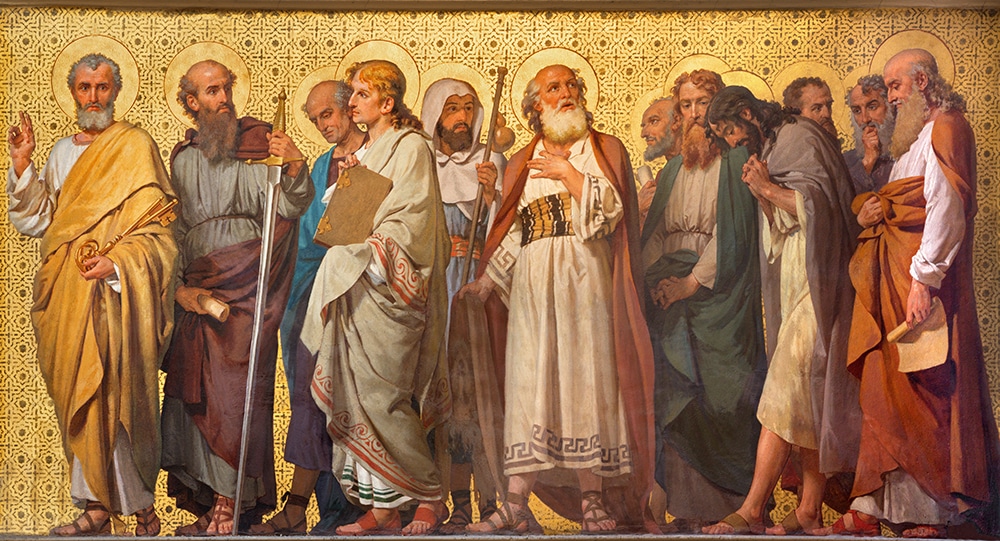
Their task. Simple. Go from town to town preaching the Good News of repentance. Cure the sick and drive out demons.
The responsibility of the Twelve seems straightforward. There is no complicated pastoral strategy or a lengthy series of committee meetings. There is the simple announcement of the Gospel, the proclamation that the kingdom of God has come.
| July 11 – Fifteenth Sunday in Ordinary Time |
|---|
|
Am 7:12-15
Ps 85: 9-10, 11-12, 13-14
Eph 1:3-14
Mk 6:7-13
|
Now, let us not be too harsh on ourselves. After all, the disciples did not quite require the organizational structure that many of our parishes have adopted.
They did not yet have the entirety of the kerygma, the Good News, that Jesus Christ had died, rose from the dead, ascended to heaven and was now present in this communion of men and women convoked by Jesus.
The Church did not consist of men and women throughout the known world. It was an inchoate Church, a rag-tag group of apostles and disciples following Jesus around.
The U.S. Church is a far more complicated reality. We have hundreds of dioceses, tens of thousands of parishes and Catholic schools. They are in trouble because of disaffiliation, loss of income and sometimes bad leadership.
I am sure that Jesus would be okay in light of all this if we hired a consultant or two to think through how to handle the institutional dimensions of the Church, especially after COVID-19. But Jesus might also invite us, as we engage in strategic planning, to remember the basics. The Gospel enkindles the world not because of excellent strategy or supreme pedagogical wisdom.
Rather, the “basics” matter.
St. Paul presents to the Church in Ephesus the basics in the context of a Christological hymn.
“Blessed be the God and Father of our Lord Jesus Christ …” (Eph 1:3).
The first thing that St. Paul tells us that we need is a disposition of praise. After all, Paul does not create a listicle of the various ways that Jesus has changed the world. He begins with blessing the God who has chosen us before the foundation of the world to belong to him.
Further, St. Paul places at the center the wondrous mysteries of the God-man, Jesus Christ. Through the life, death and resurrection of Jesus, we share in his sonship to the Father. We have been adopted as sons and daughters of the living God.
It is not Paul, his plans and schemes, that are to be adored. It is Jesus alone.
And in this hymn, St. Paul celebrates the divine providence that wrote this mystery of love into the fabric of the created order. All sin and death, all violence and hatred, was meant to be defeated through the love of Jesus, planned before the very moment of creation.
This glorious story of redemption in Ephesians is not just a general truth of men and women. Paul turns his attention upon us, the reader. It is Christ who chose you and me. It is Christ who gave us our vocation to worship and adore the living God through the transformation of our bodies into a sacrifice of love.
Ephesians gives us the basics to contemplate as we consider the pastoral crises of our day.
Wherever we go, whatever we must discern, we must bring along not staff or stiff or latest business literature.
But a hymn of love in our hearts for the God and Father of Our Lord Jesus Christ.
Who chose you and me alike in a love beyond all telling.
Praise him.
Timothy P. O’Malley, Ph.D., is the director of education at the McGrath Institute for Church Life at the University of Notre Dame.





